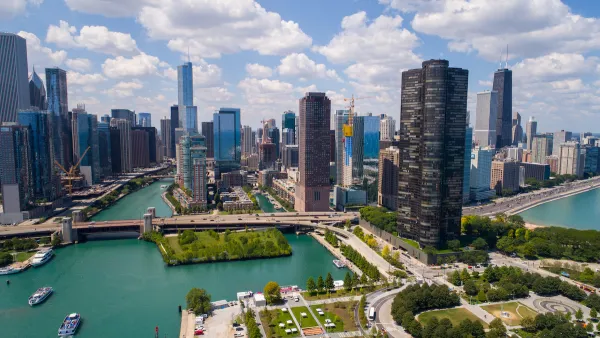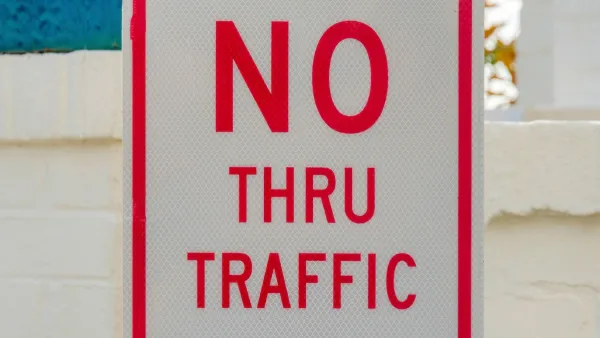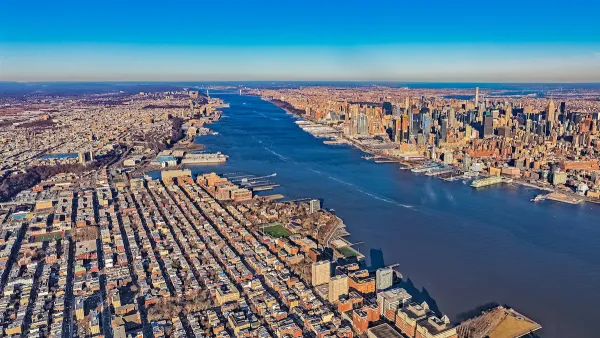Paul Krugman argues that the pervasive myth of cities as crime-ridden cesspools harms democracy and creates a false contrast between urban and small-town America.

In an op-ed for the New York Times, Paul Krugman assesses the "durable myth" that American cities teem with crime, violence, and disease. "Why do so many politicians still believe that they can run on the supposed contrast between urban evil and small-town virtue when many social indicators look worse in the heartland than in the big coastal metropolitan areas?," he asks. In fact, the country's "biggest social problems are in the 'eastern heartland,' an arc running from Louisiana to Michigan. This is where an alarmingly large number of men in their prime working years don’t have jobs and where 'deaths of despair' — that is, deaths from alcohol, suicide and drug overdoses — are running high."
These problems, Krugman writes, have economic causes: "The rise of a knowledge economy has led to a growing concentration of jobs and wealth in large, highly educated metropolitan areas, leaving much of small-town and rural America stranded. And this loss of opportunity has ended up being reflected in social disintegration, just as the disappearance of jobs did in many inner cities half a century ago." And while the Trump administration downplayed the impact of COVID-19 partly because it was seen as an urban problem, the numbers don't bear that out: "South Dakota has roughly the same population as San Francisco; it has had four times as many Covid deaths."
Krugman also questions misconceptions about who pays for federally funded assistance programs. "For example, do red-state voters know that federal spending in their states — much of it taking the form of benefits from Social Security and Medicare — greatly exceeds the taxes they pay to Washington?" Cynical politicians, he writes, "disparage some parts of the country and suggest that those regions aren’t part of the 'real America'" with often disastrous results. "Cynicism has effectively killed thousands of people in the pandemic — and it could, all too easily, end up killing democracy."
FULL STORY: The Durable Myth of Urban Hellholes

National Parks Layoffs Will Cause Communities to Lose Billions
Thousands of essential park workers were laid off this week, just before the busy spring break season.

Retro-silient?: America’s First “Eco-burb,” The Woodlands Turns 50
A master-planned community north of Houston offers lessons on green infrastructure and resilient design, but falls short of its founder’s lofty affordability and walkability goals.

Delivering for America Plan Will Downgrade Mail Service in at Least 49.5 Percent of Zip Codes
Republican and Democrat lawmakers criticize the plan for its disproportionate negative impact on rural communities.

Test News Post 1
This is a summary

Test News Headline 46
Test for the image on the front page.

Balancing Bombs and Butterflies: How the National Guard Protects a Rare Species
The National Guard at Fort Indiantown Gap uses GIS technology and land management strategies to balance military training with conservation efforts, ensuring the survival of the rare eastern regal fritillary butterfly.
Urban Design for Planners 1: Software Tools
This six-course series explores essential urban design concepts using open source software and equips planners with the tools they need to participate fully in the urban design process.
Planning for Universal Design
Learn the tools for implementing Universal Design in planning regulations.
EMC Planning Group, Inc.
Planetizen
Planetizen
Mpact (formerly Rail~Volution)
Great Falls Development Authority, Inc.
HUDs Office of Policy Development and Research
NYU Wagner Graduate School of Public Service





























